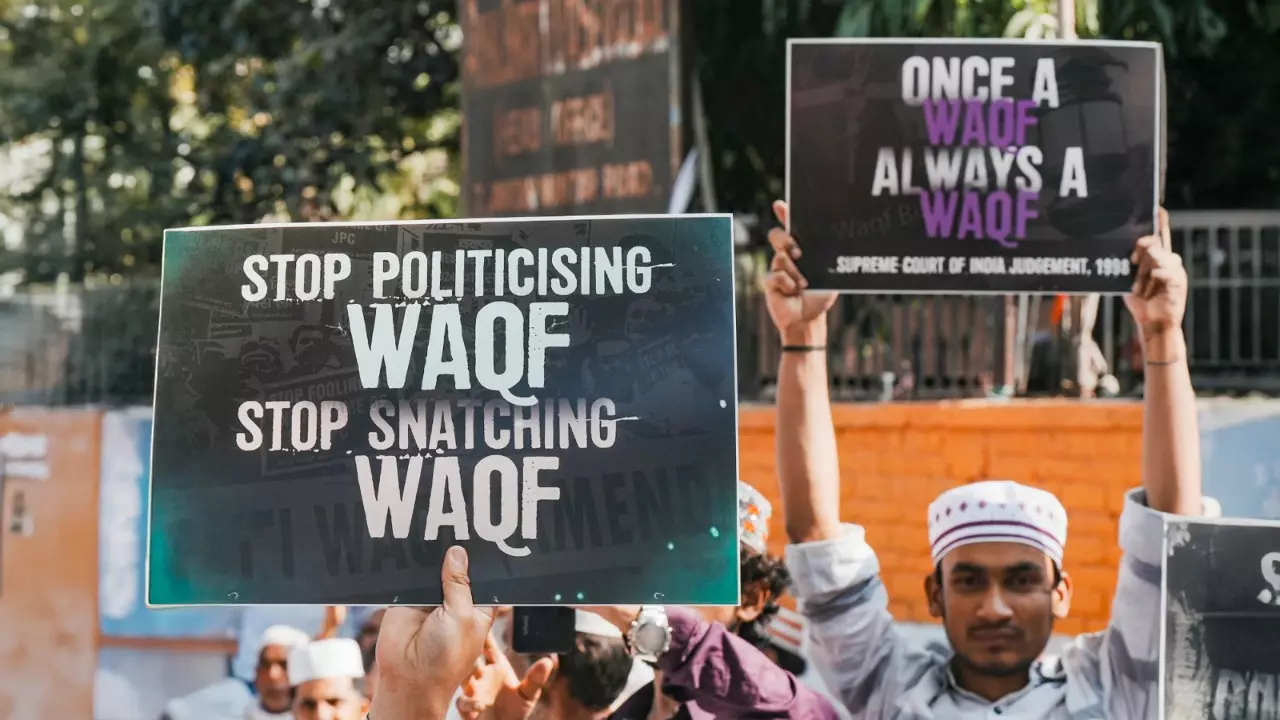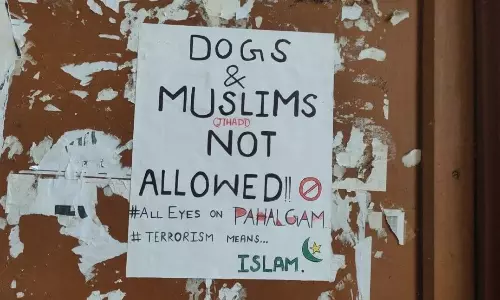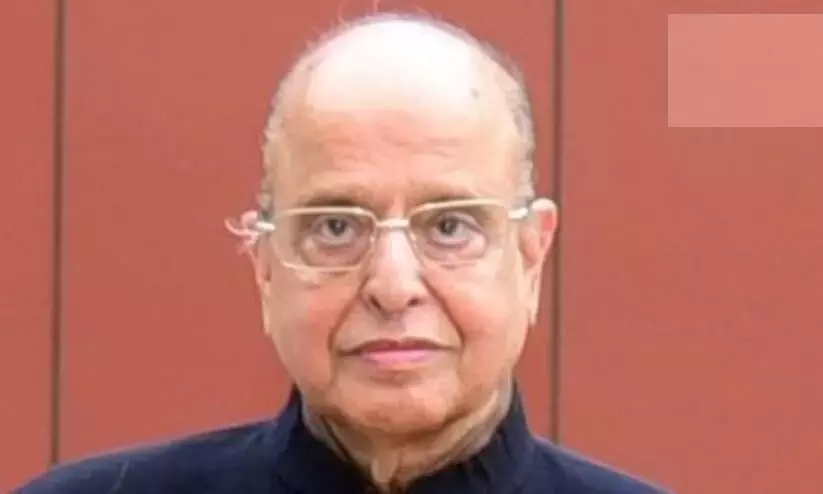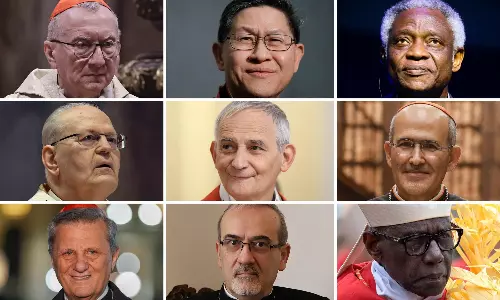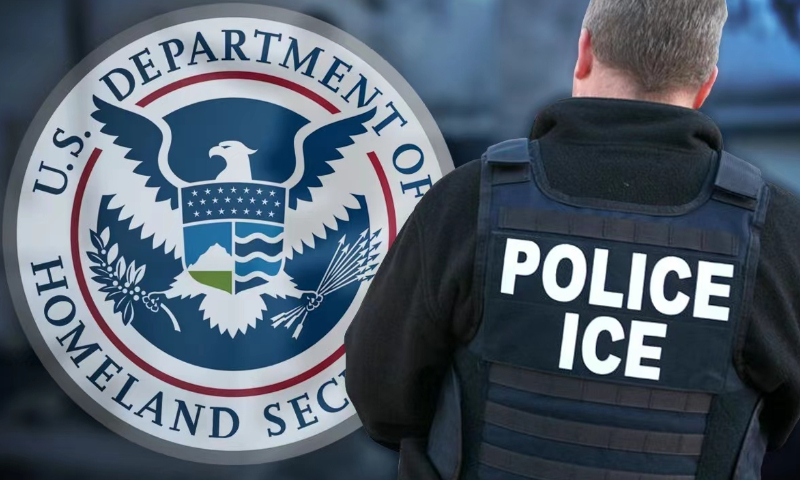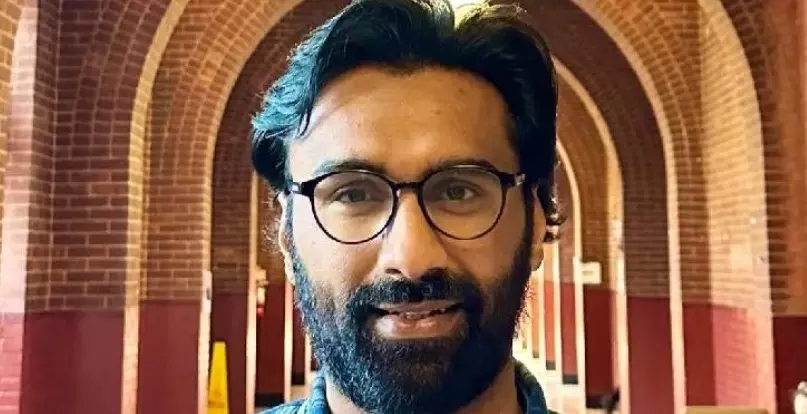
US using immigration law to silence dissent - and international students are paying the price
text_fieldsA dangerous pattern is emerging in the United States: immigration law is being weaponized to punish dissent and intimidate critics of American foreign policy - particularly those who speak up for Palestinian rights. Dozens of international students and scholars, including many from India and other allied nations, are now facing deportation, detention, or blacklisting—not for crimes or immigration fraud, but for engaging in peaceful political expression.
The clearest example is Mahmoud Khalil, a graduate student at Columbia University and a U.S. permanent resident. He was detained by ICE agents on March 8 after attending an Iftar dinner with his pregnant wife. According to his legal team, Khalil’s green card was revoked on the spot, and he was secretly transferred to a detention facility in Louisiana before lawyers could intervene. His offence? Leading a peaceful student encampment in support of Palestinian rights. President Trump even boasted online that Khalil’s arrest was “just the first of many.”
In a similar case, Badar Khan Suri, an Indian postdoctoral fellow at Georgetown University, was arrested in Virginia and moved to the same Louisiana detention center. His visa remains valid, but DHS cited vague claims about “foreign policy risks.” His wife is an American citizen and daughter of a former Hamas political wing advisor. A federal judge temporarily blocked his deportation, and his legal case continues. Neither Khalil nor Suri have been charged with any crime.
They are not alone.
Dr. Rasha Alawieh, a Lebanese-born kidney specialist and adjunct professor at Brown University, was deported in early March after returning from Lebanon - despite a court order blocking her removal. The justification? A private WhatsApp message eulogizing a Hezbollah commander, which ICE used as evidence of “national security concern.” Her legal team says this amounts to criminalizing personal expression and foreign identity.
Rumeysa Ozturk, a Turkish Fulbright scholar and PhD student at Tufts, was abducted in broad daylight by masked agents and flown 1,500 miles to a detention facility. Her student visa was revoked after she co-authored an op-ed supporting the Palestinian-led Boycott, Divestment, and Sanctions (BDS) movement. She remains in custody, though a judge has temporarily stayed her deportation.
Some international students have attempted to defend themselves preemptively. Momodou Taal, a Cornell PhD candidate from the UK and Gambia, had his visa revoked for protesting at a university career fair. He filed a lawsuit to block his deportation, but a federal judge declined to grant immediate relief. While he hasn’t been detained, he now lives under the shadow of removal, pending litigation.
Yunseo Chung, a South Korean-born Columbia student and U.S. permanent resident, narrowly avoided arrest when ICE agents attempted to detain her at her apartment. A federal judge granted her a restraining order and criticized the government’s claim that Chung posed a “foreign policy threat” merely for organizing campus protests.
Even those with no direct involvement in political organizing have been swept up. Alireza Doroudi, an Iranian engineering PhD student at the University of Alabama, was taken from his home and detained by ICE in Louisiana. No public justification has been provided for his detention, and no political activity has been linked to his case. His university has remained silent.
These cases are part of a broader crackdown. Hundreds of students reportedly received early-morning emails instructing them to "self-deport" or face enforcement, according to The Times of India. Surveillance efforts are increasingly being outsourced to private groups like Canary Mission and Betar, a militant pro-Israel network that uses facial recognition software to identify foreign students involved in campus protests and submit their names to U.S. immigration authorities.
This is not immigration enforcement - it’s ideological policing. A country that once claimed to champion free speech is now using deportation as a tool of censorship.
Indian students are not exempt. India sends the second-largest number of international students to U.S. universities. Already, several Indian nationals—including Ranjani Srinivasan, a Columbia PhD student - have faced consequences. Srinivasan fled to Canada after her visa was abruptly revoked and ICE agents visited her residence. Columbia later unenrolled her. DHS posted footage of her at the airport and publicly branded her a “terrorist sympathizer.”
These tactics evoke dark chapters of American history - from the internment of Japanese Americans to McCarthy-era blacklists. Today, speech, not security, is the government’s primary target. Peaceful protest, tweets, even WhatsApp messages are being used as justification to revoke visas, deny reentry, and permanently exile individuals from the country.
As Maura Finkelstein, a Jewish professor recently fired for her anti-Zionist views, put it: “I wasn’t fired for hate speech. I was fired for my political opinions. For being anti-Zionist. For being vocal. For being a Jew who rejects Zionism.”
Her words resonate far beyond academia. The message to the global academic community is clear: dissent may cost you your visa, your job, your freedom.
The legal tool at the center of many of these cases—Section 237(a)(4)(C)(i) of the Immigration and Nationality Act—allows the U.S. government to deport individuals whose presence is deemed to pose “potentially serious adverse foreign policy consequences.” It has become a catch-all mechanism for ideological removals, with little to no oversight.
The United States presents itself as a democracy built on rule of law. But if immigration law is used as a political weapon—where due process is sidelined, court orders ignored, and speech criminalized—then that claim rings hollow.
The consequences aren’t just legal—they are moral, academic, and geopolitical. As the U.S. increasingly isolates voices of dissent through detention and deportation, it risks turning higher education into a surveillance state and democracy into a farce.
The Indian government must do more than issue generic advisories or quietly accept the removal of its citizens. Prime Minister Narendra Modi has publicly aligned himself with President Trump’s deportation agenda, declaring at a joint press conference that those who enter another country illegally have “absolutely no right to be in that country.” While protecting legal immigration pathways - particularly H-1B visas - may be a priority for New Delhi, that should not come at the expense of abandoning vulnerable Indian students and residents to the whims of a political purge. By siding with the U.S. crackdown and failing to speak up for the rights of its own citizens, India risks legitimizing a dangerous global precedent: that immigration law can be used as a weapon against dissent. This is not just about visas or deportations. It is about whether democratic nations will defend the rights of their citizens - even when doing so comes at the cost of political convenience.
(Faisal Kutty is a Toronto-based lawyer and regular contributor to The Toronto Star. His articles also appear in Newsweek, Aljazeera, Zeteo, and Middle East Eye. You can follow him on X @faisalkutty)






